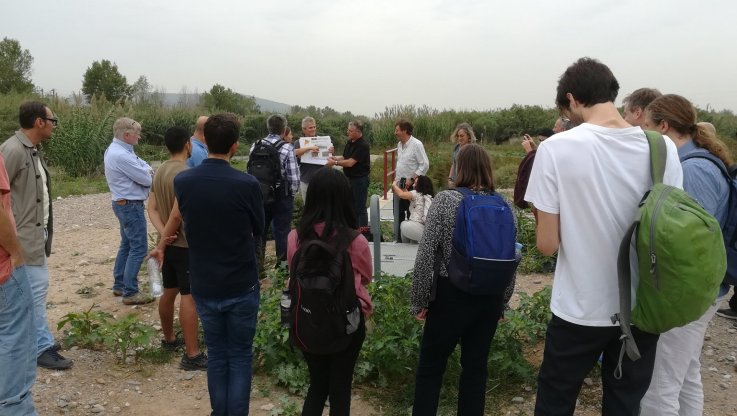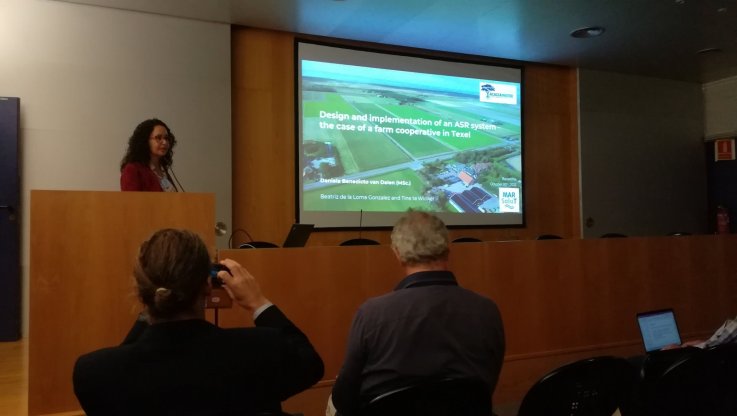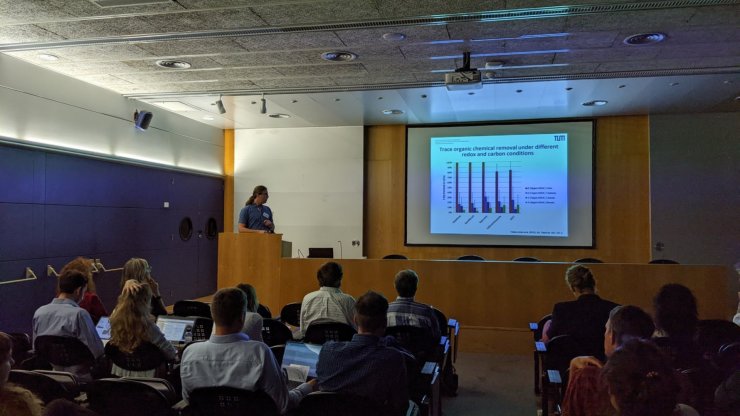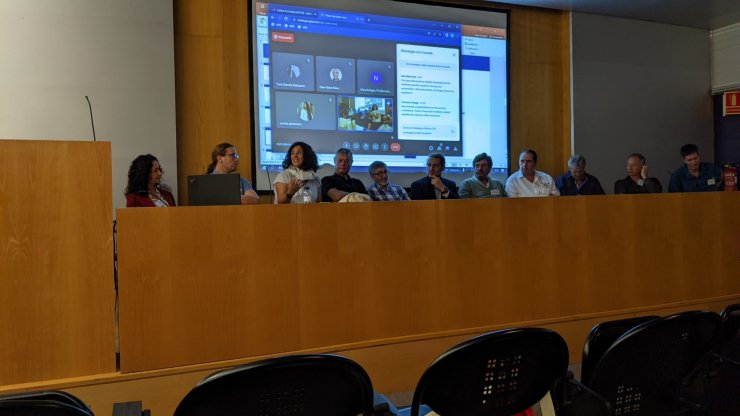

Managed Aquifer Recharge Solutions - International Conference on Current Research Results
Barcelona, 19.-20. October 2022
The objective of the conference was to bring together all interested parties from universities, research institutes, water authorities, water companies, and others from a variety of countries to learn more about the most recent research on Managed Aquifer Recharge (MAR) and its application in the frame of an integrated water resources management. The MARSoluT research fellows as well as speakers from water companies, water research institutes, and universities presented their research findings and individual projects to an international scientific audience. A panel discussion covered "global applicability, bottlenecks, and proactive legislation" of MAR implementation. Finally, a field trip organised by the Community of Water Users of the Low Valley and Delta of the Llobregat, gave a vivid example of applying MAR in a cooperative framework where water users, stakeholders, and water authority work closely together.
The conference took place at the North Campus of UPC in Barcelona and was organised for the EU MSCA MARSoluT ITN by Technical University of Darmstadt (TUDa), Darmstadt, Germany, and Universitat Politècnica de Catalunya (UPC), Barcelona, Spain. Convenors of the event were Prof. Christoph Schüth from the Institute of Applied Geology, Technical University of Darmstadt, and Prof. Xavier Sanchez-Vila and Prof. Daniel Fernàndez-Garcia, both from the Department of Civil and Environmental Engineering, Universitat Politècnica de Catalunya. The following presentations were given:
Session 1 - Sustaining Rates: Chemical, biological, and hydraulic processes resulting in clogging and reduction of infiltration rates
Session 2 - Improving Quality: Hydrogeochemical processes affecting the water quality, with special focus on micropollutants
Session 3 - Proving Performance: Monitoring and modelling, including reactive transport models to predict the fate of pathogens and emerging pollutants
Session 4 - Optimizing Design: Implications of the processes mentioned above on the technical design of MAR projects in the frame of regional flow models and water management plans
|
Full programe of the conference for download in pdf format |
The panel discussion closing the conference emphasized the absolute necessity of MAR being included into integrated water resources management and regulations in the frame of the WFD and GWD. Therefore it is essential to increase communication to politicians, end-users, and stakeholders, and MAR should also be brought into the media, education, courses, to technicians etc. It was emphasized that successful model case studies are needed, in order to promote MAR towards policy makers and regulators and to encourage others to implement MAR as well. Leading by example is one of the key aspects of introducing a technology to the public and building confidence in its performance. Water quality remains an obstacle, therefore it appears to be necessary to discuss a "fit for purpose" approach, i.e. applying different measures for, e.g., agricultural purpose, golf courses, or drinking water production.
In total 78 persons registered for participation in the conference which provided excellent opportunities for international networking.




|
Formal report of the conference including abstracts of all presentations, for download in pdf format |
 |
 |
 |
Contact: Dr. Annette Wefer-Roehl, wefer-roehl@geo.tu-darmstadt.de - Last update: 15.11.2022.
MARSoluT - Managed Aquifer Recharge Solutions Training Network - is a four-year Marie Skłodowska-Curie Actions (MSCA) Innovative Training Network (ITN) funded by the European Commission.
Coordination & Contact:
Prof. Dr. Christoph Schüth
Darmstadt Technical University
Applied Geosciences
Schnittspahnstr. 9
64287 Darmstadt
Germany
Follow us